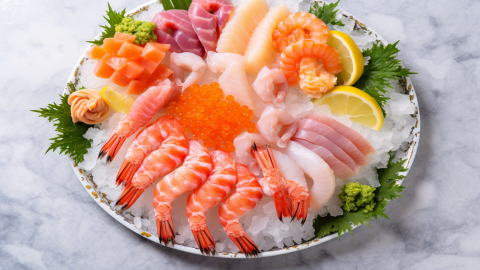Why does eating seafood cause itching down there?
Itching after eating seafood may be caused by residual seafood irritation, local moisture and heat, allergic dermatitis, vulvar eczema, or vaginitis. Symptoms can be improved through proper cleaning, keeping the area dry, and medication. If itching worsens or is accompanied by redness, swelling, or abnormal discharge, seek medical attention promptly.
1. Residual seafood irritation: Secretions or leftover juice from seafood may come into contact with the vulva after consumption, irritating the skin and mucous membranes and causing itching, without obvious redness or swelling. It is recommended to wash the vulva with warm water, change to clean underwear, and avoid scratching the affected area.
2. Local moisture and heat: Excessive sweating during seafood consumption can leave the vulvar area in a moist, hot environment for prolonged periods, promoting bacterial growth and resulting in itching with a mild sticky sensation. It is advised to wear loose, breathable cotton underwear, keep the vulva dry, and minimize prolonged sitting.

3. Allergic dermatitis: Foreign proteins in seafood may trigger an allergic reaction, causing redness, papules, and significant itching on the vulvar skin. Under medical guidance, medications such as loratadine tablets, calamine lotion, or desonide cream may be used to relieve symptoms.
4. Vulvar eczema: Seafood irritation or allergy may induce eczema, leading to redness, blisters, severe itching, and frequent recurrence. Under medical supervision, cetirizine hydrochloride drops, mometasone furoate cream, or zinc oxide ointment may be used to manage symptoms.
5. Vaginitis: Seafood allergies may reduce local immunity, allowing bacterial or fungal overgrowth and subsequent inflammation, causing itching along with increased vaginal discharge and odor. Follow medical advice to use medications such as metronidazole suppositories, clotrimazole suppositories, or Jieeryin wash solution to alleviate symptoms.
Maintain cleanliness and dryness of the vulva, wear cotton, breathable underwear, avoid consuming seafood that may trigger allergies, follow a light diet rich in fruits and vegetables, and refrain from scratching when itchy to minimize local irritation and promote recovery.






